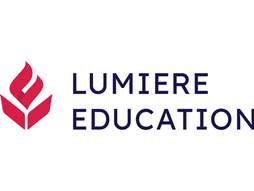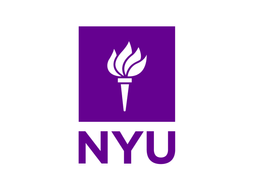Stockholm Junior Water Prize - 10 Tips to Help You Win
If you are a high school student with an interest in research especially within the field of environmental science, be sure to keep the Stockholm Junior Water Prize on your radar! The Stockholm Junior Water Prize (SJWP) will reward you for engaging in high-level scientific research and innovation, specifically focused on addressing global water challenges. Founded in 1997 by the Stockholm International Water Institute (SIWI), the SJWP is designed to complement the Stockholm Water Prize, encouraging high school students like you to pursue research on water quality.
The Water Environment Federation (WEF) coordinates the U.S. SJWP competition every year, working closely with Member Associations (MAs) to facilitate the program across the country.
Participating in prestigious competitions like the Stockholm Junior Water Prize can significantly enhance your college applications by demonstrating your commitment to topics that you are passionate about, particularly in environmental science and sustainability.
It demonstrates that you are willing to take initiative by engaging in rigorous research and presenting innovative solutions to water-related issues. Colleges and universities highly value this trait so competitions like SJWP are a great way to set you apart from other applicants.
Structure and Levels of Competition
The SJWP competition is structured across four main levels: regional, state, national, and international.
Regional Competition: This level acknowledges students' water-research projects at local science fairs or competitions across the U.S., offering regional certificates and nominations for state-level competition.
State Competition: Online submissions are judged by state panels to select a representative for the national competition. Regional winners and self-nominated students must enter the State Competition by April 15, 2024. State winners are announced annually on May 5, receiving an all-expenses-paid trip to the national competition and a medal. State winners must enter the National Competition by a date to be announced in May; the deadline will be announced in April 2024.
U.S. National Competition: The pinnacle of the U.S. competition, where the national winner is selected to represent the country in Stockholm, Sweden. The winner receives a $10,000 scholarship, trophy, and travel to the international competition. U.S. SJWP competition held at the Colorado School of Mines in Golden, Colorado, June 22-24.
International Competition: U.S. winners compete with counterparts from around 30 countries for the global title during World Water Week in Stockholm. International SJWP competition held at World Water Week in Stockholm, Sweden, August 23-27.
The competition is open to any high school student in grades 9 through 12, who has conducted a water-related science project and reached the age of 15 by August 1 of the competition year.
Teams of up to two students may enter.
Projects should be aimed at enhancing the quality of life through improvement of water quality, water resources management, or water and wastewater treatment. Projects can explore water issues on local, regional, national, or global issues.
It is essential that all projects use a research-oriented approach, which means they must use scientifically accepted methodologies for experimentation, monitoring, and reporting, including statistical analysis.
Entries are judged based on six different criteria: relevance, creativity, methodology, subject knowledge, practical skills, and report and presentation.
Unlike other science competitions, this competition weighs the quality of the scientific research paper much more heavily than the poster presentation.
The following criteria and paper guidelines are designed to provide direction for students who are entering projects into this competition.
Costs and Benefits
There is no cost to participate in this competition. Instead, you are working towards a scholarship prize! Participation in the SJWP can also greatly enhance your college applications. Engaging in this level of scientific research is a great opportunity to demonstrate that you’re passionate about water quality. Success at any level of the SJWP competition can provide valuable recognition and awards that stand out on college applications, scholarships, and future career opportunities.
Now that we have gone over the details of this competition, here are some tips to help you succeed in the SJWP competition!
Start Early and Research Thoroughly: Begin by dedicating time to understanding broad water issues, then narrow your focus based on emerging trends, such as the effects of climate change on freshwater availability. Utilize resources like the United Nations Water reports or scientific databases like Google Scholar for the latest research. For instance, if you decide to focus on drought resilience, look into current methodologies for water conservation in agriculture and consider how you might innovate in this area.
Identify a Specific Problem: Zoom in on a niche yet impactful problem, like developing a cost-effective method to detect heavy metals in drinking water. This specificity allows you to really hone in on a topic that you care about and it will be easier for you to come up with a solution. Look through the WHO’s water crisis page and UNESCO’s water quality pages for inspiration. Review case studies or news articles about affected communities for real-world insights and data.
Develop an Innovative Solution: Innovation doesn't always mean inventing something new; it can also mean significantly improving an existing process. For example, if current water purification methods are expensive and energy-intensive, you could explore the use of solar energy to power filtration systems, making the process more accessible and sustainable.
Apply Rigorous Scientific Methodology: Once you have an idea of the issue you want to do research on and start carrying out the actual experiments, make sure you detail every single aspect of it. Detail every experiment (control groups, variables, and statistical analyses). This will make writing reports a lot easier. It will also help you identify any mistakes that you may make. Suppose your project involves the removal of pollutants from water. In that case, you might set up experiments comparing different filtration materials, documenting their effectiveness in removing various pollutants and analyzing the results using software like SPSS or R.
Engage with Professionals and Mentors: Reach out to university professors, industry experts, or professionals in environmental organizations. Labs that are affiliated with accredited universities often have their own lab page with their contact information. (ex: Harvard School of Public Health’s Department of Environmental Health Page) Send them a couple of emails asking for their input! For instance, contacting a professor who specializes in hydrology could provide insights into your project on groundwater depletion. They can offer feedback on your methodology or suggest relevant studies to strengthen your project.
Sustainability and Practicality: Evaluate the lifecycle of your solution, from raw materials to end-of-life disposal. Ultimately, your goal should be to develop a project that may actually be implemented some day. The only way to do this is by having an idea that can be sustainably applied. For a project on biodegradable water bottles, assess the carbon footprint of production, the biodegradation process, and its effectiveness in reducing plastic pollution in water bodies. Projects that consider these factors demonstrate a comprehensive understanding of sustainability, strengthening your submission.
Prepare a Thorough Research Paper: Structure your paper with a clear abstract, introduction, methodology, results, discussion, and conclusion. If you aren’t sure what this looks like, use search engines such as Pubmed and Google Scholar to get a sense of what current literature looks like and how you should be structuring your work. Another thing to keep in mind when writing our paper is that you should cite all sources accurately. Use visuals effectively; for instance, include a graph showing the results of tests comparing the efficiency of different water purification methods you've developed, making complex data accessible.
Master Your Presentation Skills: Since presentation is one of the grading criteria, be sure to create a compelling narrative around your project, starting with the problem, your innovative approach, and the potential global impact. Use tools like PowerPoint or Prezi to visually support your narrative. A great way to practice delivering your presentation is to present your material to your peers and teachers allowing you to explain complex concepts simply and compellingly.
Show Passion and Commitment: The key to winning this prize is to clearly demonstrate your passion for the topic. Personalize your project by sharing why the issue matters to you and how you envision your solution making a difference. For example, if you're focusing on clean water access, share stories of communities you've researched or interacted with that could benefit from your project.
Review Past Winning Projects: Lastly, be sure to analyze winning projects to figure out what makes them unique; look for scientific depth and impact. Read through this article on past winners and look into their projects. For example, the 2023 winner, Naomi Park, worked on Concurrent Removal of Rising, Soluble Ocean Carbon Dioxide and Oil-in-Water Contaminants via Multi-Functional Remediation Framework. Look for patterns in topics, methodologies, or presentation styles that you could use in your own project. By incorporating these strategies into your project for the SJWP, you'll definitely be better equipped to create a compelling, impactful, and scientifically rigorous entry. Nonetheless, this competition is worth entering even if you don’t win since you will then have valuable research experience under your belt, something to talk about on applications and interviews.
If you’re looking for a competitive mentored research program in subjects like data science, machine learning, political theory, biology, and chemistry, consider applying to Horizon’s Research Seminars and Labs!
This is a selective virtual research program that lets you engage in advanced research and develop a research paper on a subject of your choosing. Horizon has worked with 1000+ high school students so far and offers 600+ research specializations for you to choose from.
You can find the application link here
If you are interested in pre-college programs focused on art, consider applying to the Lumiere Research Scholar Program, a selective online high school program for students I founded with researchers at Harvard and Oxford. Last year, we had over 4000 students apply for 500 spots in the program! You can find the application form here.
Also, check out the Lumiere Research Inclusion Foundation, a non-profit research program for talented, low-income students.
Jessica attends Harvard University where she studies Neuroscience and Computer Science as a Coca-Cola, Elks, and Albert Shankar Scholar. She is passionate about educational equity and hopes to one day combine this with her academic interests via social entrepreneurship. Outside of academics, she enjoys taking walks, listening to music, and running her jewelry business!
Image Source: Stockholm Junior Water Prize logo











Comments